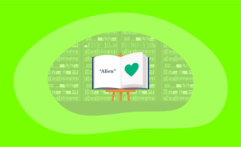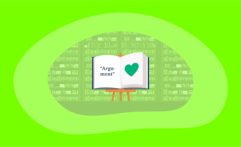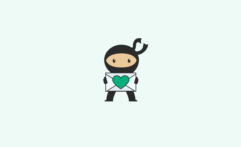Top 10 Positive & Impactful Synonyms for “Drunk” (With Meanings & Examples)
Affiliate Disclosure
Hey fellow impactful ninja ?
You may have noticed that Impactful Ninja is all about providing helpful information to make a positive impact on the world and society. And that we love to link back to where we found all the information for each of our posts.
Most of these links are informational-based for you to check out their primary sources with one click.
But some of these links are so-called "affiliate links" to products that we recommend.
Why do we add these product links?
First and foremost, because we believe that they add value to you. For example, when we wrote a post about the environmental impact of long showers, we came across an EPA recommendation to use WaterSense showerheads. So we linked to where you can find them. Or, for many of our posts, we also link to our favorite books on that topic so that you can get a much more holistic overview than one single blog post could provide.
And when there is an affiliate program for these products, we sign up for it. For example, as Amazon Associates, we earn from qualifying purchases.
What do these affiliate links mean for you?
First, and most importantly, we still only recommend products that we believe add value for you.
When you buy something through one of our affiliate links, we may earn a small commission - but at no additional costs to you.
And when you buy something through a link that is not an affiliate link, we won’t receive any commission but we’ll still be happy to have helped you.
What do these affiliate links mean for us?
When we find products that we believe add value to you and the seller has an affiliate program, we sign up for it.
When you buy something through one of our affiliate links, we may earn a small commission (at no extra costs to you).
And at this point in time, all money is reinvested in sharing the most helpful content with you. This includes all operating costs for running this site and the content creation itself.
What does this mean for me personally?
You may have noticed by the way Impactful Ninja is operated that money is not the driving factor behind it. It is a passion project of mine and I love to share helpful information with you to make a positive impact on the world and society. However, it's a project in that I invest a lot of time and also quite some money.
Eventually, my dream is to one day turn this passion project into my full-time job and provide even more helpful information. But that's still a long time to go.
Stay impactful,
Elated, lighthearted, and spirited—positive and impactful synonyms for “drunk” enhance your vocabulary and help you foster a mindset geared toward making a positive impact. So, we had to ask: What are the top ten positive & impactful synonyms for “drunk”?
The top 10 positive & impactful synonyms for “drunk” are elated, jubilant, merry, buoyant, effervescent, gleeful, blissful, lighthearted, cheerful, and spirited. Using these synonyms helps you enhance both your communication and psychological resilience in several meaningful ways.
In the table below, you can see all these top ten synonyms including their descriptions, why they are positive and impactful synonyms for “drunk,” and example sentences that highlight how you can use each of these. We’ll then also share ten benefits of why you should use these synonyms, ten interesting facts about the word “drunk,” and a brief history of the development of our alphabet.
Here Are the Top 10 Positive & Impactful Synonyms for “Drunk”
Our list of positive & impactful synonyms for “drunk” help you expand your vocabulary and enhance both your communication and psychological resilience in several meaningful ways (you can read more about it in the next section).
That’s why it’s so important to focus on synonyms that can be used in a positive and impactful way.
Drunk: past participle of drink | affected by alcohol to the extent of losing control of one’s faculties or behavior | a person who is drunk or who habitually drinks to excess
Oxford Dictionary
Our top ten synonyms for “drunk” exemplify the beauty of our language—their meaning is not just fixed but can be shaped by the context they are used in.
| Synonym | Description | Example Sentence |
| Elated | Suggests a high level of happiness or excitement, ‘drunk’ in its sense of being lifted in spirits. | “She felt elated after the toast, her joy infectious among guests.” |
| Jubilant | Highlights an expression of great joy or celebration, akin to ‘drunk’ in its festive connotation. | “The jubilant crowd celebrated the victory with exuberance.” |
| Merry | Implies cheerful and lively, similar to ‘drunk’ in its association with light-heartedness and festivity. | “The party was merry, filled with laughter and dancing.” |
| Buoyant | Suggests being cheerful and full of energy, parallel to ‘drunk’ in its uplifting effect on mood. | “His buoyant demeanor at the gathering was contagious.” |
| Effervescent | Indicates vivacity and enthusiasm, akin to ‘drunk’ in the positive transformation of spirits. | “Her effervescent laughter brightened the entire room.” |
| Gleeful | Denotes delight and great pleasure, resonating with ‘drunk’ in its expression of uninhibited joy. | “They were gleeful after the successful performance.” |
| Blissful | Implies extreme happiness, akin to ‘drunk’ in its sense of experiencing heightened emotional states. | “The couple seemed blissful during their sunset stroll.” |
| Lighthearted | Highlights a carefree and relaxed attitude, similar to ‘drunk’ in its freeing or liberating quality. | “The lighthearted banter made the evening fly by.” |
| Cheerful | Suggests being noticeably happy and optimistic, parallel to ‘drunk’ in its positive mood enhancement. | “His cheerful presence was always welcome at family reunions.” |
| Spirited | Indicates lively and full of energy, akin to ‘drunk’ in its ability to elevate one’s vigor and enthusiasm. | “The spirited conversation was a highlight of the dinner.” |
10 Benefits of Using More Positive & Impactful Synonyms
Our positive & impactful synonyms for “drunk” help you expand your vocabulary and enhance both your communication and psychological resilience in several meaningful ways:
- Encouraging Positive Framing: Using positive synonyms allows for a more optimistic and affirmative way of expressing thoughts. This can influence not only the speaker’s or writer’s mindset but also positively impact the audience’s perception and reaction.
- Improving Emotional Intelligence: Learning different positive synonyms helps in accurately expressing emotions. This aids in emotional intelligence, as one can more precisely convey feelings and understand the emotions of others.
- Enhancing Persuasive Communication: In persuasive writing and speaking, using positive synonyms can be more effective in convincing an audience, as people generally respond better to positive language.
- Broadening Emotional Vocabulary: A range of positive synonyms enriches your emotional vocabulary. It’s one thing to say you’re “happy” and another to express that you’re “elated,” “joyful,” or “content.” Each word carries a unique emotional hue.
- Creating a Positive Atmosphere: The use of positive language can create a more constructive and encouraging atmosphere in both personal and professional settings. This can lead to better teamwork, more effective communication, and improved interpersonal relationships.
- Enhancing Creative Writing: For those engaged in creative writing, a repertoire of positive synonyms can help in vividly depicting scenes, characters, and emotions, making the narrative more engaging and lively.
- Improving Mental Health and Well-being: Regularly using and thinking in terms of positive words can influence one’s mental state and outlook on life. Positive language has been linked to greater well-being and a more optimistic outlook.
- Improving Cognitive Flexibility: Expanding your vocabulary with positive synonyms enhances your cognitive flexibility. This means you become more adept at thinking creatively and adapting your language use to different situations. The mental exercise involved in learning and using a variety of positive words can also contribute to overall cognitive health, keeping your mind sharp and responsive.
- Building Social Skills and Empathy: When you have a variety of positive words at your disposal, you’re better equipped to offer compliments, encouragement, and empathetic responses in social interactions.
- Facilitating Conflict Resolution: In situations of conflict, the use of positive language can help de-escalate tension. Having a range of positive synonyms allows for more constructive and diplomatic communication.
Overall, your use of positive synonyms not only broadens your vocabulary but also positively influences your thought processes, emotional expression, and interpersonal interactions.
10 Interesting Facts About the Word “Drunk”
Let’s take a step back and have a look at some interesting facts about the word “drunk”.
- Etymology: The word “drunk” comes from the Old English “druncen,” originally a past participle of “drinkan,” to drink. Its use to describe intoxication dates back to at least the 14th century.
- Legal Terms: “Drunk” is used in legal contexts to describe intoxication, especially in laws regarding drunk driving. The legal definition of being drunk can vary by jurisdiction but generally involves a measurable level of alcohol in the blood.
- Historical Usage: The concept of being drunk is not new; ancient texts and artifacts show that civilizations like the Greeks and Romans had words to describe drunkenness, highlighting its long-standing human relevance.
- Cultural Variations: Attitudes towards being drunk vary significantly across cultures, with some societies having strict taboos against intoxication, while others celebrate it during certain festivals and social occasions.
- Medical Understanding: The medical community recognizes different stages of intoxication, from euphoria to depression, confusion, stupor, coma, and even death, depending on the level of alcohol consumed.
- Prohibition and Social Movements: The temperance movement and Prohibition era in the United States highlighted the social and political dimensions of alcohol consumption, including drunkenness, leading to significant legal and cultural shifts.
- Language and Slang: English has numerous slang terms for being drunk, reflecting the social nuances and creative language use associated with alcohol consumption.
- Psychological Effects: Beyond physical effects, being drunk can alter perception, mood, and behavior, leading to impaired judgment, heightened emotions, or changes in personality.
- Global Alcohol Consumption: The World Health Organization provides statistics on alcohol consumption worldwide, indicating variations in drinking patterns and the prevalence of drunkenness across different countries.
- Festivals and Celebrations: In many cultures, certain festivals or celebrations are traditionally associated with consuming alcohol to the point of drunkenness, such as Oktoberfest in Germany or St. Patrick’s Day in Ireland and its global observance.
A Brief History of Our Alphabet
The story of our alphabet has a rich and compelling history, beginning with ancient civilizations and carrying forward into the present day.
The history of our modern alphabet is a fascinating journey that spans several millennia and cultures. It’s commonly referred to as the Latin or Roman alphabet, and here’s a brief overview of its evolution:
- Phoenician Alphabet (circa 1050 BCE): The story begins with the Phoenician alphabet, one of the oldest writing systems known to use a one-to-one correspondence between sounds and symbols. This Semitic alphabet had about 22 consonants, but no vowels, and was primarily used for trade.
- Greek Alphabet (circa 800 BCE): The Greeks borrowed and adapted the Phoenician script. Crucially, they introduced vowels, making it one of the first true alphabets where each symbol represented a distinct sound (both vowel and consonant). The Greek alphabet had a significant influence on the development of other alphabets.
- Etruscan Alphabet (circa 700 BCE): The Etruscan civilization in Italy adapted the Greek alphabet to their own language. While Etruscan was largely replaced by Latin, their version of the alphabet was a key predecessor to the Roman one.
- Latin Alphabet (circa 700 BCE – Present): The Latin alphabet emerged from the adaptation of the Etruscan script. Ancient Rome used this alphabet, and it spread across Europe as the Roman Empire expanded. The original Latin alphabet did not contain the letters J, U, and W. These were added much later along with other modifications to suit different languages and phonetic needs.
- Modern Variations: Today, the Latin alphabet is the most widely used alphabetic writing system in the world. It has undergone various changes to accommodate different languages and sounds. For instance, English—among other languages—added letters like ‘J’, ‘U’, and ‘W’, while other languages incorporate additional characters like ‘Ñ’ in Spanish or ‘Ç’ in French.
This evolution reflects not just linguistic changes but also cultural and historical shifts, as the alphabet was adapted by different societies across centuries.
Final Thoughts
Expanding your vocabulary is akin to broadening your intellectual horizons and enhancing your capacity to express your thoughts and emotions with precision. By embracing additional synonyms for “drunk,” you’re not just learning new terms, but you’re also gaining nuanced ways to communicate positivity and impact.
The more words you have at your disposal, the more accurately and vividly you can paint your thoughts into speech and writing. So, by growing your vocabulary, especially with positive and impactful words, you’re empowering yourself to engage more effectively and inspiringly with the world around you.
Stay impactful,

Sources
- Society for Personality and Social Psychology: Why a Simple Act of Kindness Is Not as Simple as It Seems: Underestimating the Positive Impact of Our Compliments on Others
- Journal of Personality: Psychological Resilience and Positive Emotional Granularity: Examining the Benefits of Positive Emotions on Coping and Health
- David Sacks: Letter Perfect: The Marvelous History of Our Alphabet From A to Z
- Impactful Ninja: Positive & Impactful Words Starting With A
- Impactful Ninja: Positive & Impactful Words Starting With B
- Impactful Ninja: Positive & Impactful Words Starting With C
- Impactful Ninja: Positive & Impactful Words Starting With D
- Impactful Ninja: Positive & Impactful Words Starting With E
- Impactful Ninja: Positive & Impactful Words Starting With F
- Impactful Ninja: Positive & Impactful Words Starting With G
- Impactful Ninja: Positive & Impactful Words Starting With H
- Impactful Ninja: Positive & Impactful Words Starting With I
- Impactful Ninja: Positive & Impactful Words Starting With J
- Impactful Ninja: Positive & Impactful Words Starting With K
- Impactful Ninja: Positive & Impactful Words Starting With L
- Impactful Ninja: Positive & Impactful Words Starting With M
- Impactful Ninja: Positive & Impactful Words Starting With N
- Impactful Ninja: Positive & Impactful Words Starting With O
- Impactful Ninja: Positive & Impactful Words Starting With P
- Impactful Ninja: Positive & Impactful Words Starting With Q
- Impactful Ninja: Positive & Impactful Words Starting With R
- Impactful Ninja: Positive & Impactful Words Starting With S
- Impactful Ninja: Positive & Impactful Words Starting With T
- Impactful Ninja: Positive & Impactful Words Starting With U
- Impactful Ninja: Positive & Impactful Words Starting With V
- Impactful Ninja: Positive & Impactful Words Starting With W
- Impactful Ninja: Positive & Impactful Words Starting With X
- Impactful Ninja: Positive & Impactful Words Starting With Y
- Impactful Ninja: Positive & Impactful Words Starting With Z




